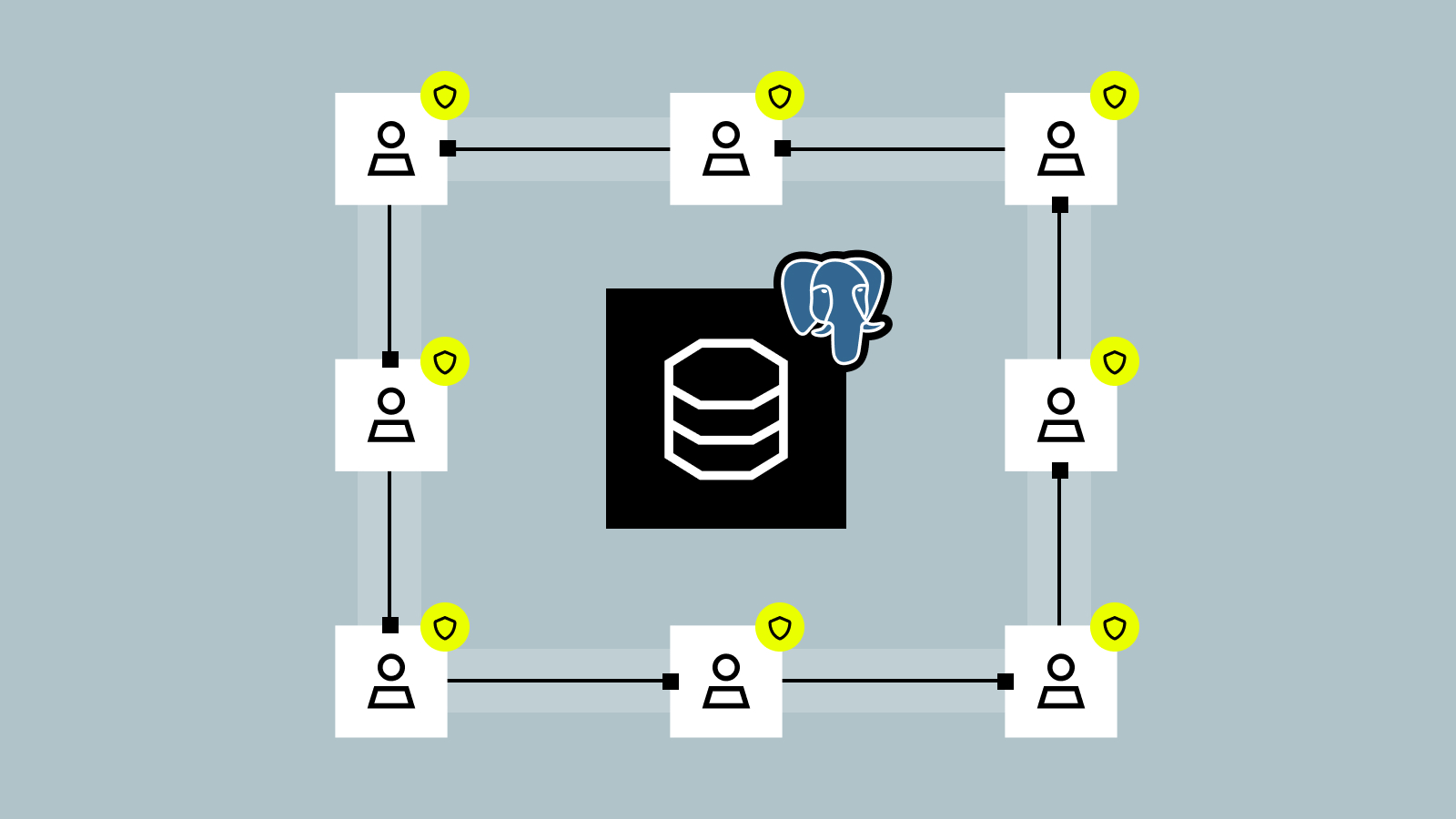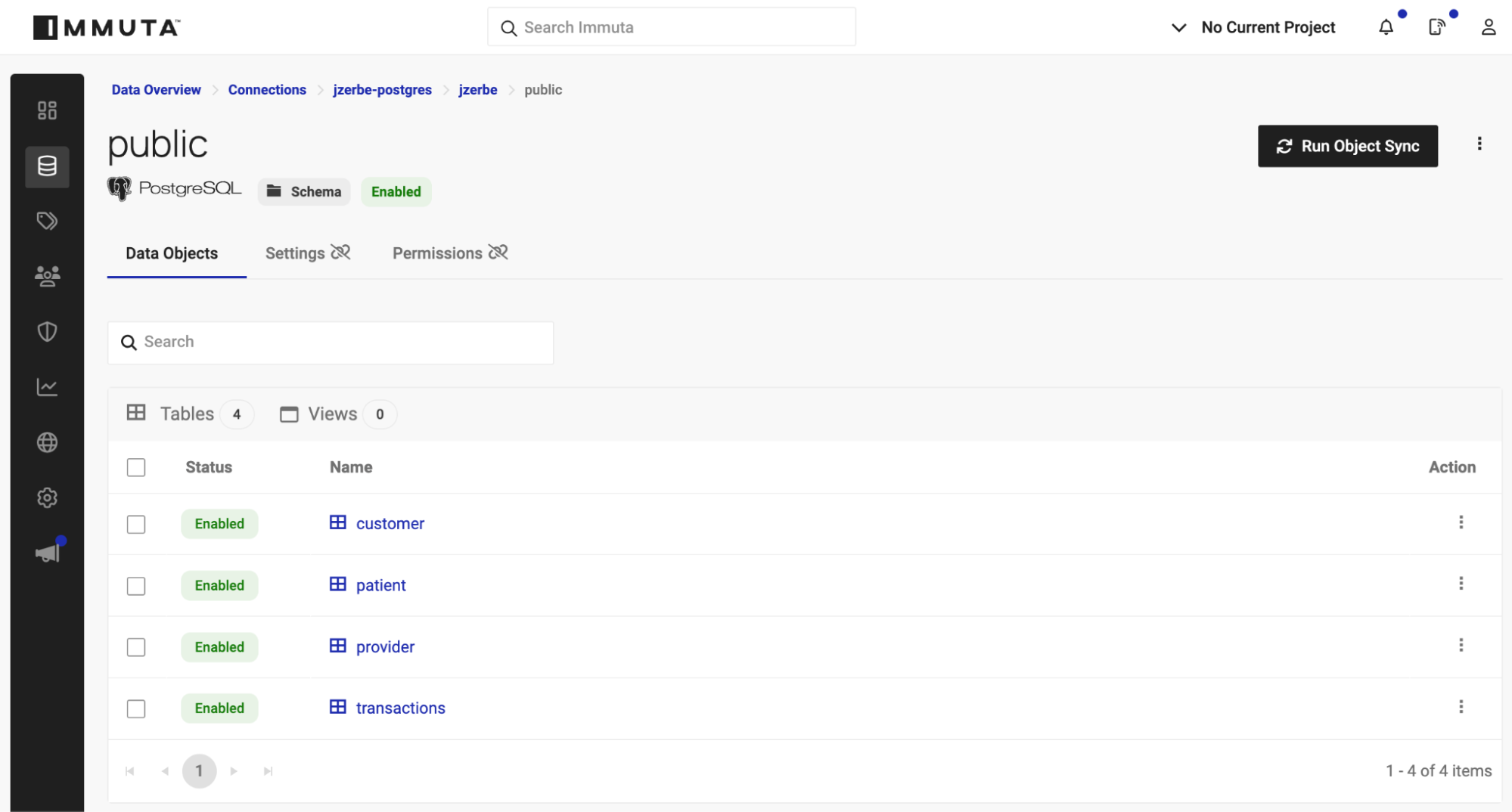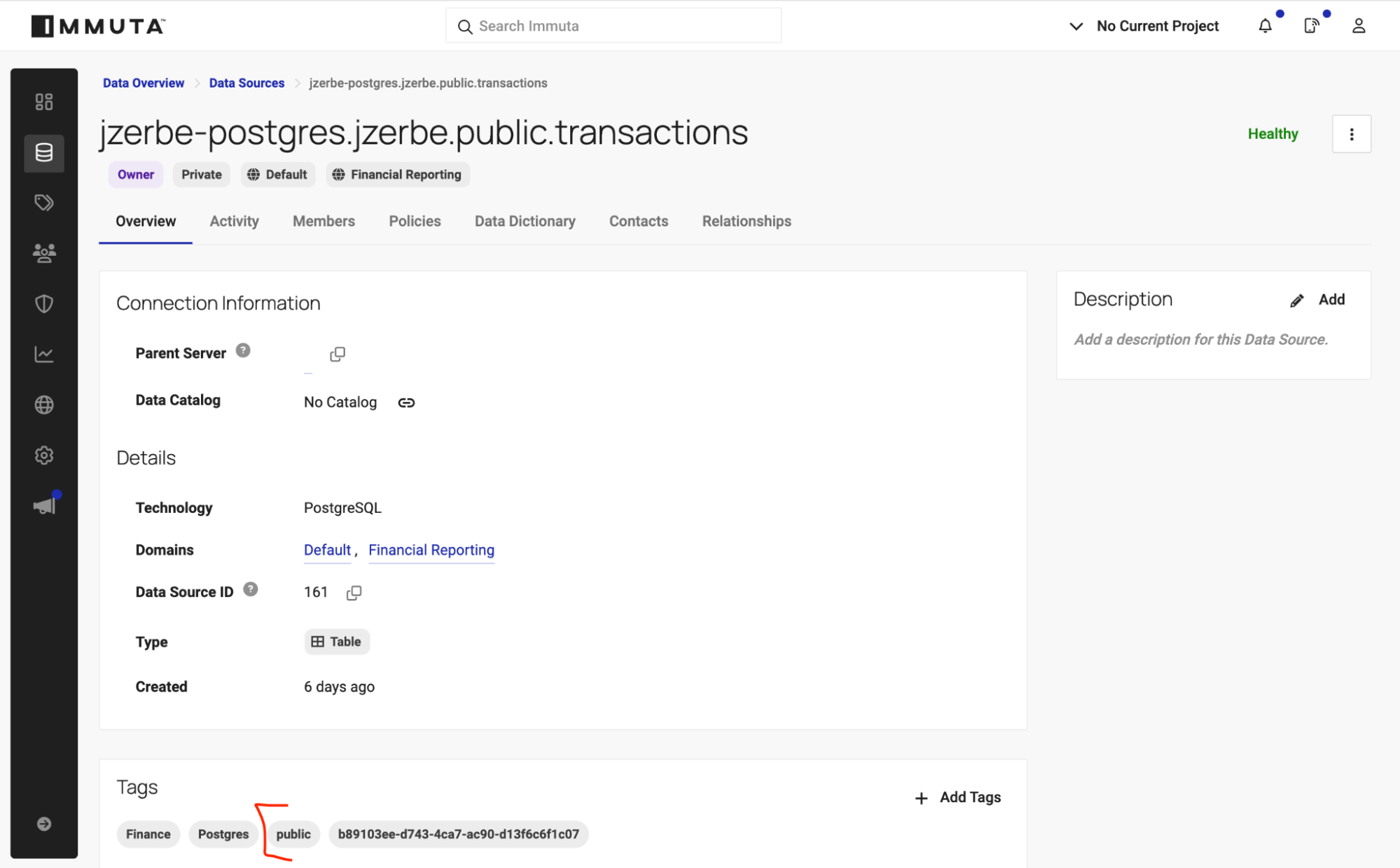
Gone are the days of relying on point tools to provision data – at least for companies that want to scale data access efficiently. Modern organizations need to cut the redundancies, silos, confusion, and chaos of disparate solutions. In other words, they need one platform to automate data provisioning.
Immuta’s newly released integration with PostgreSQL fulfills that promise.
With Immuta, organizations can maximize their investment in PostgreSQL by automating data provisioning for secure data analytics. This allows them to get better insights from their data – without sacrificing efficiency, performance, or control. In this guide, we’ll provide an overview of the value to enterprises, how the PostgreSQL integration works, and a brief demo video to tie it all together.
Why use Immuta to orchestrate PostgreSQL?
Manually managing PostgreSQL grants becomes increasingly complex and unsustainable as the volume of access requests grows. This is particularly true in environments with numerous data consumers and AI agents, where the burden of hand-crafting permissions can overwhelm data teams.
Immuta offers a streamlined alternative by automating the orchestration of PostgreSQL access grants. Instead of grappling with individual grant statements, you can define policies within Immuta that govern access based on various attributes, groups, and purposes. This approach allows you to handle a much larger volume of access requests, without sacrificing efficiency or consistency.
By leveraging Immuta, you can scale your data access operations without proportional increases in manual labor. That’s because Immuta policies automatically translate requests from both human and AI users into the appropriate PostgreSQL grants. This dynamic system ensures that access is granted based on predefined rules, maintaining security and compliance even as the volume of requests surges. The reduction in manual intervention not only saves time and resources, but also minimizes the risk of human error that can lead to security vulnerabilities or data leaks.
Furthermore, Immuta provides an audit trail and visibility into all data access activities, making it easier to track who has access to what data and why. This transparency is crucial for compliance purposes, and for ensuring that access is aligned with organizational policies.
Finally, as AI agents become more prevalent, the ability to automatically provision and revoke access based on predefined rules will be essential for managing their interactions with sensitive data. Immuta’s orchestration capabilities enable you to confidently handle the growing demands of data consumers and AI agents alike, ensuring secure and governed access to PostgreSQL data at scale.
Automation at all levels of data access maturity
For organizations across the data access maturity spectrum, entrusting Immuta with PostgreSQL grant orchestration is a strategic move. How?
Early stages of maturity
If your organization is just beginning its data journey, and you find yourself oscillating between open and closed access systems, you can use Immuta to establish consistent, auditable access controls from the outset.
Immuta provides a foundation for future scalability, ensuring data governance keeps pace as data volumes and user bases grow. Instead of struggling with ad hoc, inconsistent, and manual grants, you can start with clearly defined policies, laying a secure groundwork for your data initiatives.
Later stages of maturity
For more mature organizations, particularly those adopting birthright access and empowering data stewards, Immuta becomes indispensable. Handling a large volume of access requests based on complex attributes and groups is a significant challenge – and the increase in AI agents accessing data will only exacerbate it. Immuta alleviates the burden by automating this process, translating intricate policies into precise PostgreSQL grants.
This ensures that access is granted accurately and efficiently, even when requests originate from diverse data consumers and AI agents. Subject-matter experts – such as domain data owners and data product owners – can now maximize their impact by focusing on defining policies rather than manually managing grants. Immuta’s fine-grained control and unified audit capabilities allow mature organizations to maintain security and compliance, while scaling self-service data provisioning.
Regardless of your organization’s level of data access maturity, Immuta offers significant advantages. By automating PostgreSQL grant orchestration, you can:
- Reduce manual effort
- Increase confidence/minimize errors
- Increase capacity in data provisioning
Immuta’s ability to manage access for both human data consumers and AI agents is crucial in today’s evolving data landscape. With a scalable and secure solution for governing and provisioning access to PostgreSQL data, you can focus on leveraging data for insights rather than being bogged down by manual access management.
How does Immuta’s PostgreSQL integration work?
Let’s look at Immuta’s integration with PostgreSQL.
All new integrations – which we’ll explore more below – are available with Immuta’s onboarding process called Connections, which provides a familiar instance->database->schema->table view of data assets.

Upon further inspection into the transactions table, we notice that this newly discovered PostgreSQL table is automatically tagged with the schema it’s from, as highlighted in red below.

Many of Immuta’s customers use a similar approach, building policies based upon schema and column content tags.
How to connect PostgreSQL to Immuta
Interested in orchestrating PostgreSQL access with Immuta policy? In the following demo, you’ll see how to:
- Connect a PostgreSQL instance
- Select relevant data sources
- Provision access to specific schemas and tables
Immuta-supported PostgreSQL flavors
Immuta’s new PostgreSQL integration is designed to seamlessly work across a wide range of popular PostgreSQL flavors, ensuring flexibility and compatibility for your data environment.
Whether you are using Amazon Aurora, RDS, Neon, open-source PostgreSQL, or CrunchyData, Immuta’s solution allows you to automate data provisioning and access control with confidence. This means you can leverage your existing PostgreSQL infrastructure and maximize its value, without concerns about integration or compatibility issues.
With Immuta, you can trust that the same robust policy enforcement and access management capabilities will function consistently across different PostgreSQL deployments. This uniformity simplifies your data governance strategy and ensures that your data remains secure and accessible, regardless of the specific PostgreSQL flavor you are utilizing.
No more having to re-create policy in every connected platform. No more tedious auditing processes that don’t give you the full picture. Immuta’s broad support provides the peace of mind that your data access controls are consistently applied and managed across your diverse data landscape, allowing you to focus on driving insights and achieving business objectives.
Take a closer look.
Dive deeper into Immuta's support for AWS.






